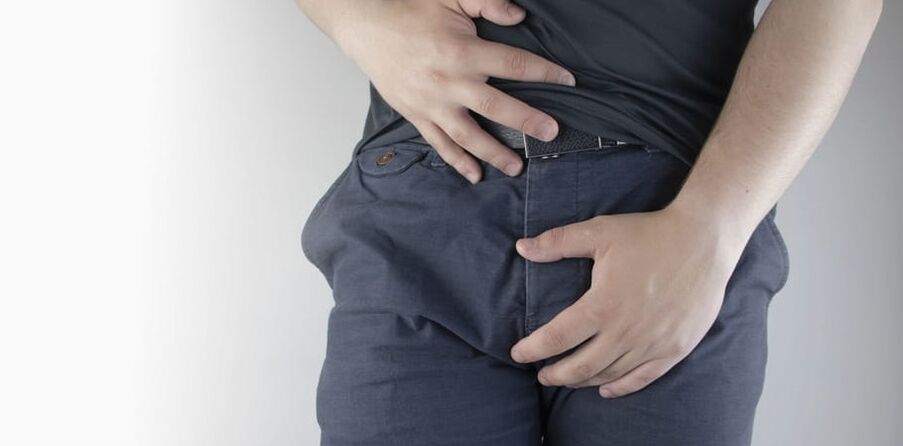For most people, varicose veins mean only a pathology of the lower extremities. However, vascular problems can develop in any part of the body, and intimate places in men and women are no exception. Varicose veins of the labia and other organs of the vulva, penis, and testicles (varicoceles) are especially troubling.

Reason
The main factor in the development of the pathology is a genetically determined weakening of the vessel wall, in which the veins lose tone and elasticity. Other causes of varicose veins of the organs in the groin are:
- malnutrition with frequent constipation;
- chronic diseases of the genitourinary system;
- intense physical activity with tension in the pelvic muscles and anterior abdominal wall;
- slow blood circulation in the groin due to a sedentary lifestyle;
- compression of blood vessels and obstruction of the outflow of venous blood due to blood clots, scarring, adhesions, tumors of various etiologies;
- changes in hormone levels during physical maturation, pregnancy, menopause, taking hormonal medications;
- increased load on the organs of the perineum in women before and after pregnancy, childbirth;
- stagnation of blood and compression of the vessels of the small pelvis and perineum due to the growth of the uterus;
- trauma and surgery of the external genitalia in men and women;
- frequent urinary retention;
- systemic delay in ejaculation;
- Take frequent hot showers, baths, and saunas.
Symptom
In women, varicose veins affect the labia and other parts of the vulva, in men - the penis, scrotum. Depending on the location, the disease has similar and different symptoms.
Popular ones include:
- spider veins in the early stages;
- dilated inguinal veins protrude at the perineum, palpable with an altered edema, grape-shaped plexus and nodes in grade 3-4 of varicocele;
- bluish skin color;
- itching, burning, pain develops congestion;
- feeling of fullness;
- pain during intimate contact, defecation, exertion.
With varicose veins of the labia and vulva, there are also:
- Pain that radiates to the lower back or hips, of a chronic nature, disrupts a woman's normal life and leads to a deterioration in her psycho-emotional state: depression, irritability, poor sleep, psychosisterrible.
- Hard and large clots make it difficult to sit and move.
Varicose veins (varicose veins) in men with:
- asymmetry, prolapse, swelling of the scrotum on the affected testicle;
- inconvenience, burning and pain during walking and the slightest exertion;
- impaired quality of intimate life, leading to impotence and infertility.
The failure of the penis is manifested:
- severe swelling of the veins, even in a calm state;
- painful erection;
- a change in the color of the skin from dark pink to dark red with a hint of blue;
- swelling of soft tissues;
- accurately identify hemorrhages and visible dimples under the skin.
What is danger?
Injury to the organs in the groin can cause serious complications and negative consequences: blood clots in the vessels causing thrombosis, phlebitis, sudden bleeding from intercourse or straining during bowel movements.
Labia and pussy
If left untreated, the disease will progress and cause complications:
- Varicose veins are one of the forms of thrombophlebitis, which is manifested by the defeat of the superficial vessels of the lower extremities. Complications to the deep and main veins, pulmonary artery.
- Pelvic thrombosis is the formation of blood clots in the superficial and deep veins that, if they rupture, can be fatal.
As medical practice shows, the development of bleeding with such a pathology is rare, and the situation of rupture of an inflamed vein is rare, but it is possible, especially during childbirth, Therefore, varicose veins of the labia should be treated immediately after diagnosis.
Penis
Varicose veins of the penis and spermatic cord lead to decreased sperm quality and impaired erectile function. The psychological health of the patient is also affected: the altered appearance affects the mental state, leading to depression and neurodevelopment, leading to impotence.
The treatment
The basis for the treatment of varicose veins is taking drugs and eliminating factors that provoke the development of the pathology - proper nutrition, sports, drinking regimen, regulation of body weight.
The drug is prescribed systemically in the form of tablets, capsules or locally in the form of ointments, creams. The following groups are prescribed: tonic venotonics (phleboprotectors) to strengthen the vessel walls, increase the tone and elasticity of the veins, reduce edema and lymphatic congestion, antiplatelet agents for reabsorptionblood clots, NSAIDs to reduce inflammation and pain, antihistamines for itching, burning, and others.
Pregnant women should wear compression panties or tights (with pockets in the abdomen), for men - a special model of underwear to support the testicles and penis in the correct position.
Among the minimally invasive methods, sclerotherapy is recommended - the introduction of special substances into the vessels that bind the damaged areas and the blood moving through the healthy veins, as well as surgical excision. laser or radio waves, working on the same principle - sealing the affected vessel area.
Surgical treatment is applied only after childbirth, if the veins have not returned to a healthy state, that is, the cause of the varicose veins is not due to pregnancy.
In the early stages of the pathology, it is possible to treat with alternative therapeutic methods: ointments, decoctions of medicinal plants, compresses and baths based on them. Before treating a medical condition with alternative therapies, you must definitely consult a doctor.












































